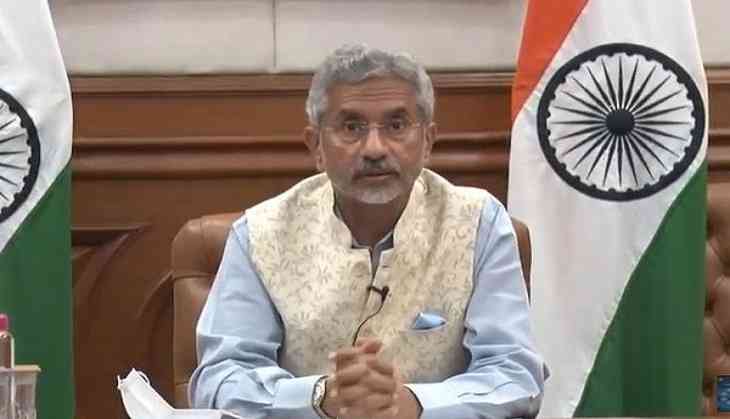
India has stepped forward as the first responder when it comes to humanitarian assistance or disaster relief in the region, said External Affairs Minister S Jaishankar, adding that Indian military medical teams contributed to stabilising public health situations in several countries including Kuwait, Madagascar and the Maldives amid the COVID-19 pandemic.
Speaking at the ICWA-USI International Gallipoli Virtual Seminar on Thursday, Jaishankar highlighted that India has been the largest contributor to UN Peacekeeping with 50 missions and 253,000 soldiers, in addition to police personnel.
"It's worth recalling that Indian soldiers during World War were motivated neither by conquests nor requisition. Their driving force was military ethics, honour and dignity of a professional soldier. This shaped their self-perception and behaviour aborad, building an image of discipline and responsibilities, standards with which the Indian military is associated at home and abroad. It's particularly relevant to an India that's now poised to enter a different phase of its evolution," he noted.
Asserting that the "exemplary demeanour" of Indian soldiers in World War I has set India on the long road to peacekeeping, Jaishankar said: "With 50 Missions 253,000 soldiers, in addition to Police personnel, India has been the largest contributor to UN Peacekeeping."
The minister noted that in a world that is less multilateral than it should be, the "common good is increasingly a national initiative".
"India has step forward as the first responder when it comes to humanitarian assistance or disaster relief. We have seen that often seen whether it is a civil war in Yemen or earthquake in Nepal, cyclone in Mozambique or mudslides in Sri Lanka," he said.
"Some of the travails that the COVID-19 subjected us to were also addressed by Indian military deployment. The military medical teams contributed to stabilising public health situations in Kuwait, the Maldives, Mauritius, Seychelles, Madagascar and Comoros last year. Challenges, however, are not only in the time of crisis. The Global commons struggles every day with the threat of maritime security. the danger of terrorism and organised are ever-present," he said.
Jaishankar stressed that the responsibility of the current time will have to be borne by those who have the capability and willingness to do so.
"Time and change are making natural disaster more frequent. Ideally, every significant challenge should have been addressed by a great mechanism or regime. However, the realities are far sadder. It is clear that responsibility for the current time will have to be borne by those who have the capability and willingness to do so," he added.
(ANI)


